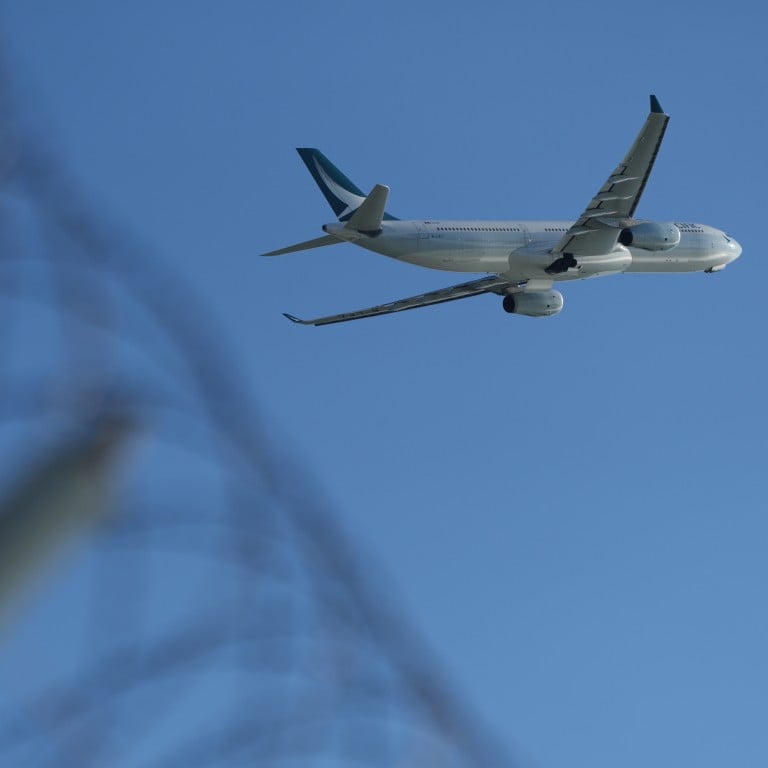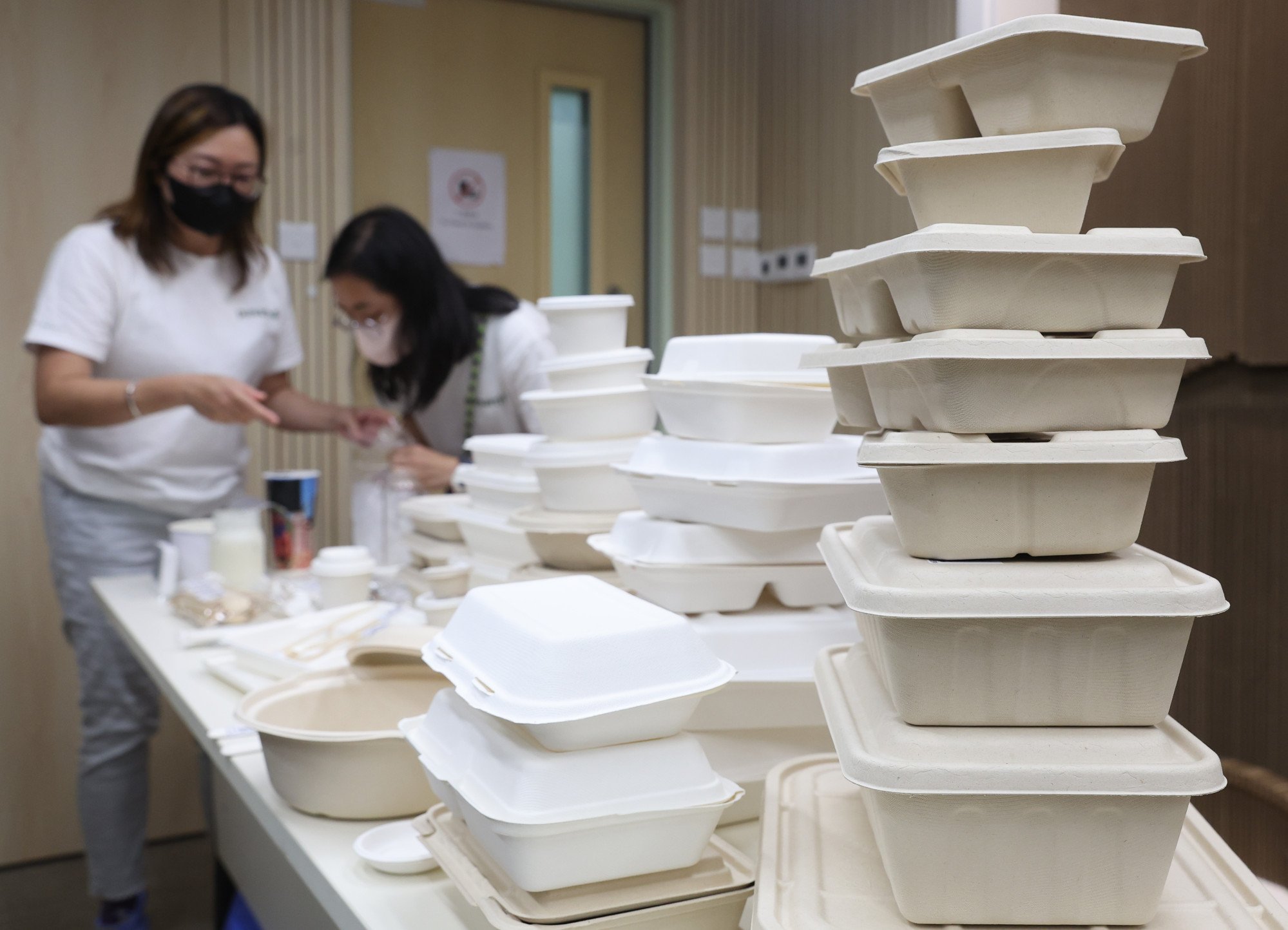
Sky’s not the limit for Hong Kong’s plastics ban, with policy to cover city’s airlines and all outbound flights
- First stage of ban takes effect on April 22 and prohibits use of styrofoam products and throwaway plastic utensils, as well as cups and containers for dine-in services
- ‘The government has not granted any exemptions. The practices applying to airlines and other businesses are the same,’ environmental authorities tell Post
The first stage of the ban will take effect on April 22 and prohibits styrofoam products and throwaway plastic utensils, including straws and swizzle sticks. Plastic cups and containers will no longer be available for customers eating at restaurants.
Kenneth Cheng Kin, an assistant director with the department, stressed its officers would not penalise businesses that breached the ban during a six-month grace period.
Authorities confirmed to the Post that the restrictions would also apply to flights operated by international airlines flying out of the city.
“The government has not granted any exemptions,” a department spokesman said. “The practices applying to airlines and other businesses are the same.
“Those meals produced by foreign companies in Hong Kong will also be regulated by the new law as [their flights originate] within the city.”
The ban covers containers that are “wholly or partly made of plastic”, ranging from conventional plastics to biodegradable ones.
Hotels will no longer be allowed to freely give out water in plastic bottles or toiletry kits containing single-use plastics.
The second phase will ban single-use plastic cups and boxes for takeaway services. Its launch date has yet to be announced.

The government earlier said the ban would focus on businesses, such as hotels and restaurants, rather than individuals.
Cathay Pacific said on Friday that it was exploring alternatives to throwaway plastic utensils and containers, despite some eco-friendly replacements being unavailable.
A spokesman added the airline had set a target in 2019 to reduce single-use plastic items from 7.7 pieces per passenger to 1.5 by 2025.
“We also keep abreast of new single-use plastic import and consumption laws and regulations in jurisdictions we operate and actively take part in industry discussions through the International Air Transport Association’s single-use plastic working group,” he said.
Hong Kong Airlines said it had taken “proactive measures to align with the government’s environmental goals” and had started to use cutlery made of wood, bamboo and paper for economy-class passengers. Those in business class were being offered metal utensils for in-flight meals.
“In addition to reducing plastic waste, we have enhanced our waste management system to ensure proper sorting and recycling of materials,” the airline said.
Low-cost airline HK Express said it had replaced non-recyclable plastic items with greener alternatives, such as compostable cutlery sets and wooden swizzle sticks. In-flight meals are not included in airfares and must be purchased.
Hong Kong needs new solutions for its money-losing plastics recycling efforts
The Post has also contacted Greater Bay Airlines for comment.
The Airport Authority said Hong Kong was home to three companies that provided airline food, with their combined capacity amounting to 198,000 meals a day.
The Environmental Protection Department also clarified that restaurants would not be held responsible for customers eating their takeaway meals at venues’ designated seating areas in shopping centres.
“If the customer decides to dine-in instead, we won’t deem the restaurant in violation of our regulation as the customer did wish to get takeaway at the time of ordering,” it said.
Cheng said earlier on Friday that authorities would focus on education and support for businesses caught breaching the ban the first time.
“After the grace period, we will continue to arrange patrols at relevant businesses and understand the difficulties of individual cases,” he said.
“We will enforce the law when it comes to repeat offenders who haven’t shown improvement.”
Is Hong Kong ready for ban on throwaway plastics starting next month?
Department staff will inspect the city’s 20,000 restaurants, as well as its 20,000 retailers, hotels and guest houses, to ensure businesses comply with the ban and to learn about any related difficulties they face.
The department said spot checks would be conducted after the six-month grace period.
While authorities have yet to outline the violation threshold before a business faces prosecution, Director of Environmental Protection Samuel Chui Ho-kwong said his staff would keep compliance records.
“We will tally patrol records, such as their reasons for not complying. When we talk to the businesses, we will check if they have implemented improvement measures,” he said.
Chui said warning letters would be issued before any prosecutions were launched.
He expressed confidence the grace period would give firms enough time to adapt.
“What we feel is that the trade can adapt to the situation and there is no problem with this [ban],” he said.

